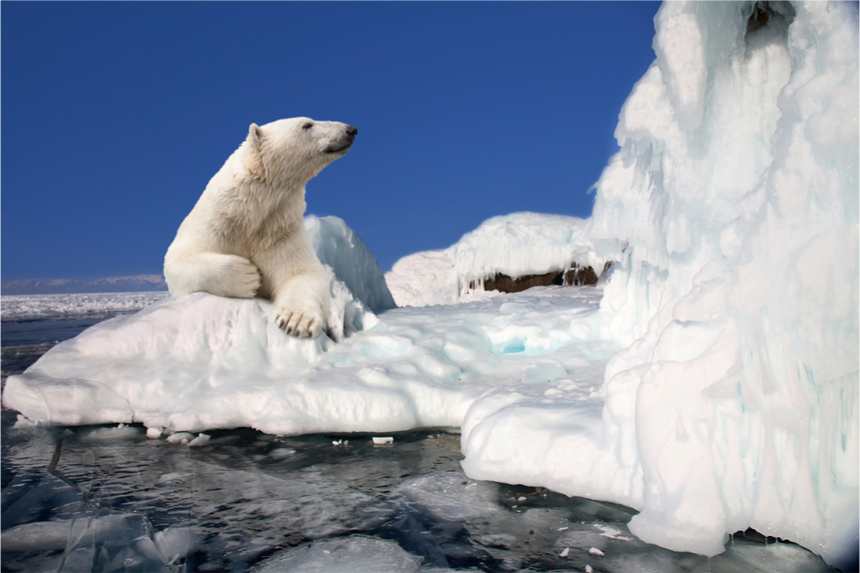Managing editor and logophile Andy Hollandbeck reveals the sometimes surprising roots of common English words and phrases. Remember: Etymology tells us where a word comes from, but not what it means today.
Those of us in the grip of the polar vortex are having a bear of a time with frigid arctic winds, physically and etymologically. Though the word arctic indicates the coldest climes, it derives from a word for something more associated with warm fur, big hugs, and even forest fires.
In the northern hemisphere, one of the first things budding astronomers learn to identify in the night sky is the Big Dipper — which is technically not a constellation but an asterism, a pattern of stars that make up part of a constellation. The Big Dipper is the flank and tail of the constellation Ursa Major, “the Great Bear,” which, from our perspective, circles the North Star (Polaris) once a day.
Ancient Greek astronomers saw the same Great Bear in the sky, but they didn’t call it Ursa Major — that would be weird because Ursa Majoris is Latin. They called it Arktos Megale. Megale is an etymological aunt to the English prefix mega-, and arktos is Greek for “bear.”
Because early travelers navigating by the stars relied on Arktos Megale to help orient themselves, arktos came to indicate not only the stars but the direction those stars indicated: north. From this meaning of arktos grew the adjective arktikos “of the north” (but literally “of the bear”). It’s this word that evolved through Latin (arcticus) to Medieval Latin (articus) to Old French (artique) to the English arctic that we have today.
It’s either a work of monumental magic or linguistic kismet that polar bears live in the Arctic region — the region named for a bear — and not in the cold southern extremes. Antarctica, then, can be viewed etymologically not only as “land opposite to the north” but also as “the land of no bears,” which it is.
Become a Saturday Evening Post member and enjoy unlimited access. Subscribe now




Comments
What a timely, interesting lesson this one is, professor. I couldn’t help thinking though too that this Arctic Cold is a b—-! You set the headline up that way which is great, and so is the photo of that beautiful polar bear!